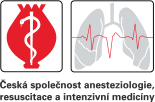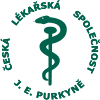Anest. intenziv. Med. 2010;21(1):14-17
Cardiogenic shock with systemic inflammatory response: Complications of acute myocardial infarctionIntesive Care Medicine - Review Article
- 1 Jednotka intenzivní péče, Anesteziologicko-resuscitační oddělení, Karlovarská krajská nemocnice, a. s.
- 2 Lékařská fakulta Plzeň, Univerzita Karlova v Praze
The mortality of cardiogenic shock remains high despite current progress in revascularisation and the supportive treatment of myocardial infarction. An activation of systemic inflammation may appear in one fifth of the cases of cardiogenic shock and as such may further increase the risk of death.
Keywords: acute myocardial infarction; SIRS; cardiogenic shock
Received: June 16, 2009; Accepted: November 1, 2009; Published: February 1, 2010 Show citation
References
- Babaev, A. et al. Trends in management and outcomes of patients with acute myocardial infarction complicated by cardiogenic shock. JAMA, 2005, 294, p. 448-454.
 Go to original source...
Go to original source...  Go to PubMed...
Go to PubMed... - Fox, K. A. et al. Intervention in acute coronary syndromes: do patients undergo intervention on the basis of their risk charakteristics? The Global Registry of Acute Coronary Events (GRACE). Heart, 2007, 93, p. 177-182.
 Go to original source...
Go to original source...  Go to PubMed...
Go to PubMed... - Hochman, J. S. et SHOCK Investigators Early revascularization in acute myocardial infarction complicated by cardiogenic shock. Should we emergently revascularize occluded coronaries for cardiogenic shock. N. Engl. J. Med., 1999, 341, p. 625-634.
 Go to original source...
Go to original source...  Go to PubMed...
Go to PubMed... - Kohsaka, S. et al. Systemic inflammatory response syndrome after acute myocardial infarction complicated by cardiogenic shock. Arch. Intern. Med., 2005, 165, p. 1643-1650.
 Go to original source...
Go to original source...  Go to PubMed...
Go to PubMed... - Hochman, J. S. et al. Cardiogenic shock complicating acute myocardial infarction: Expanding the paradigm. Circulation, 2003, 107, p. 2998-3002.
 Go to original source...
Go to original source...  Go to PubMed...
Go to PubMed... - Cotter, G. et al. Cardiogenic shock-beyond the large infarction. Crit. Care Med., 2006, 34, p. 2234-2235.
 Go to original source...
Go to original source...  Go to PubMed...
Go to PubMed... - Armstrong, P. W. et al. Pexelizumab for acute ST-elevation myocardial infarction in patients undergoing primary percutaneous coronary intervention: a randomized controlled trial. JAMA, 2007, 297, p. 43-51.
 Go to original source...
Go to original source...  Go to PubMed...
Go to PubMed... - Alexander, J. H. et TRIUMPH Investigators Effect of tilarginine acetate in patients with acute myocardial infarction and cardiogenic shock: the TRIUMPH randomized controlled trial. JAMA, 2007, 297, p. 1657-1666.
 Go to original source...
Go to original source...  Go to PubMed...
Go to PubMed... - Reynolds, H. R. et al. Cardiogenic shock: Current Concepts and Improving Outcomes. Circulation, 2008, 117, p. 686-697.
 Go to original source...
Go to original source...  Go to PubMed...
Go to PubMed... - Kohsaka, S. et al. High incidence of sepsis complicating cardiogenic shock following acute myocardial infarction. Circulation, 2001, 104, p.II-483.
- Geppert, A. et al. Plasma concentrations of interleukin-6, organ failure, vasopressor support, and successful coronary revascularization in predicting 30-day mortality of patients with cardiogenic shock complicating acute myocardial infarction. Crit. Care Med., 2006, 34, p. 2035-2042.
 Go to original source...
Go to original source...  Go to PubMed...
Go to PubMed... - Nicholls, S. J. et al. Metabolic profiling of arginine and nitric oxide pathways predicts hemodynamic abnormalities and mortality in patients with cardiogenic shock after acute myocardial infarction. Circulation, 2007, 116, p. 2315-2324.
 Go to original source...
Go to original source...  Go to PubMed...
Go to PubMed... - Mathey, D. et al. Early accumulation of the terminal complement - complex in the ischaemic myocardium after reperfusion. Eur. Heart J., 1994, 15, p. 418-423.
 Go to original source...
Go to original source...  Go to PubMed...
Go to PubMed... - Deliargyris, E. N. et al. Sites of interleukin-6 release in patients with acute coronary syndromes and in patients with congestive heart failure. Am. J. Cardiol., 2000, 86, p. 913-918.
 Go to original source...
Go to original source...  Go to PubMed...
Go to PubMed... - Neumann, F. J. et al. Cardiac release of cytokines and inflammatory responses in acute myocardial infarction. Circulation, 1995, 92, p. 748-755.
 Go to original source...
Go to original source...  Go to PubMed...
Go to PubMed... - Wildhirt, S. M. et al. Involvement of inducible nitric oxide synthetase in the inflammatory process of myocardial infarction. Int. J. Cardiol., 1995, 50, p. 253-261.
 Go to original source...
Go to original source...  Go to PubMed...
Go to PubMed... - Yamauchi-Tahikara, K. et al. Hypoxic stres induces cardiac myocyte-derived interleukin-6. Circulation, 1995, 91, p. 1520-1524.
 Go to original source...
Go to original source...  Go to PubMed...
Go to PubMed... - Brunkhorst, F. M. et al. Pyrexia, procalcitonin, immune activation and survival in cardiogenic shock: The potential importance of bacterial translocation. Int. J. Cardiol., 1999, 72, p. 3-10.
 Go to original source...
Go to original source...  Go to PubMed...
Go to PubMed... - Theroux, P. et al. Prognostic significance of blood markers of inflammation in patients with ST-segment elevation myocardial infarction undergoing primary angioplasty and effects of pexelizumab, a C5 inhibitor: substudy of the COMMA trial. Eur. Heart J., 2005, 26, p. 1964-1970.
 Go to original source...
Go to original source...  Go to PubMed...
Go to PubMed... - Zhang, C. et al. TNF-alfa contributes to endothelial dysfunction in ischemia/reperfusion injury. Arterioscler. Thromb. Vasc. Biol., 2006, 26, p. 475-480.
 Go to original source...
Go to original source...  Go to PubMed...
Go to PubMed... - Debrunner, M. et al. Proinflammatory cytokines in acute myocardial infarction with and without cardiogenic shock. Clin. Res. Cardiol., 2008, 97, p. 298-305.
 Go to original source...
Go to original source...  Go to PubMed...
Go to PubMed... - Granger, C. B. et al. Pexelizumab, an anti-C5 complement antibody, as adjunctive therapy to primary percutaneous coronary intervention in acute myocardial infarction: the COMplement inhibition in Myocardial infarction treated with Angioplasty (COMMA) trial. Circulation, 2003, 108, p. 1184-1190.
 Go to original source...
Go to original source...  Go to PubMed...
Go to PubMed... - de Werra, I. et al. Cytokines, nitrite/nitrate, soluble tumor necrosis factor receptors, and procalcitonin concentrations: comparisons in patients with septic shock, cardiogenic shock, and bacterial pneumonia. Crit. Care Med., 1997, 25, p. 607-613.
 Go to original source...
Go to original source...  Go to PubMed...
Go to PubMed... - Flesch, M. et al. Acute effects of nitric oxide and cyclic GMP on human myocardial contractility. J. Pharmacol. Exp. Ther., 1997, 281, p. 1340-1349.
- Ulmans, J. G. et al. Nitric oxide in the regulation of blood flow and arterial pressure. Annu. Rev. Physiol., 1995, 57, p. 771-790.
 Go to original source...
Go to original source...  Go to PubMed...
Go to PubMed... - Nijveldt, R. J. et al. Asymmetrical dimethylarginine (ADMA) in critically ill patients: high plasma ADMA concentration is an independent risk factor of ICU mortality. Clin. Nutr., 2003, 22, p. 23-30.
 Go to original source...
Go to original source...  Go to PubMed...
Go to PubMed... - Cotter, G. et al. L-NAME (a NO synthase inhibitor) in the treatment of refractory cardiogenic shock: A prospective randomized study. Eur. Heart J., 2003, 24, p. 1287-1295.
 Go to original source...
Go to original source...  Go to PubMed...
Go to PubMed... - Cotter, G. et al. L-NMMA (a nitric oxide synthase inhibitor) is effective in treatment of cardiogenic shock. Circulation, 2000, 101, p. 1358-1361.
 Go to original source...
Go to original source...  Go to PubMed...
Go to PubMed... - Dzavik, V. et al. Effect of nitric oxide synthase inhibition on haemodynamics and outcome of patients with persistent cardiogenic shock complicating acute myocardial infarction: a phase II dose-ranging study. Eur. Heart J., 2007, 28, p. 1109-1116.
 Go to original source...
Go to original source...  Go to PubMed...
Go to PubMed... - Bailey, A. et al. The tragedy of TRIUMPH for nitric oxide synthesis inhibition in cardiogenic shock: where do we go from here? Am. J. Cardiovac. Drugs, 2007, 7, p. 337-345.
 Go to original source...
Go to original source...  Go to PubMed...
Go to PubMed... - Teerlink, T. Tilarginine in patients with acute myocardial infarction and cardiogenic shock. JAMA, 2007, 298, p. 971-972.
 Go to original source...
Go to original source...  Go to PubMed...
Go to PubMed... - Kohsaka, S. et al. SHOCK Investigators Microbiological profile of septic complications in patients with cardiogenic shock following acute myocardial infarction (from the SHOCK study). Am. J. Cardiol., 2007, 15, 99, p. 802-804.
 Go to original source...
Go to original source...  Go to PubMed...
Go to PubMed... - Bochicchio, G. V. et al. Systemic inflammatory response syndrome score at admission independently predicts infection in blunt trauma patients. J. Trauma, 2001, 50, p. 817-820.
 Go to original source...
Go to original source...  Go to PubMed...
Go to PubMed... - Hoover, L. et al. Systemic inflammatory response syndrome and nosocomial infection in trauma. Journal Trauma Injury Infect Critical Care, 2006, 61, p. 310-317.
 Go to original source...
Go to original source...  Go to PubMed...
Go to PubMed... - Rau, M. B. et al. Early assessment of pancreatic infections and overall prognosis in severe acute pancreatitis by procalcitonin (PCT). Annals of Surgery, 2007, 245, p. 745-754.
 Go to original source...
Go to original source...  Go to PubMed...
Go to PubMed... - Tang, B. M. P. et al. Accuracy of procalcitonin for sepsis diagnosis in critically ill patients: systematic review and meta-analysis. Lancet Infect Dis., 2007, 7, p. 210-217.
 Go to original source...
Go to original source...  Go to PubMed...
Go to PubMed...





